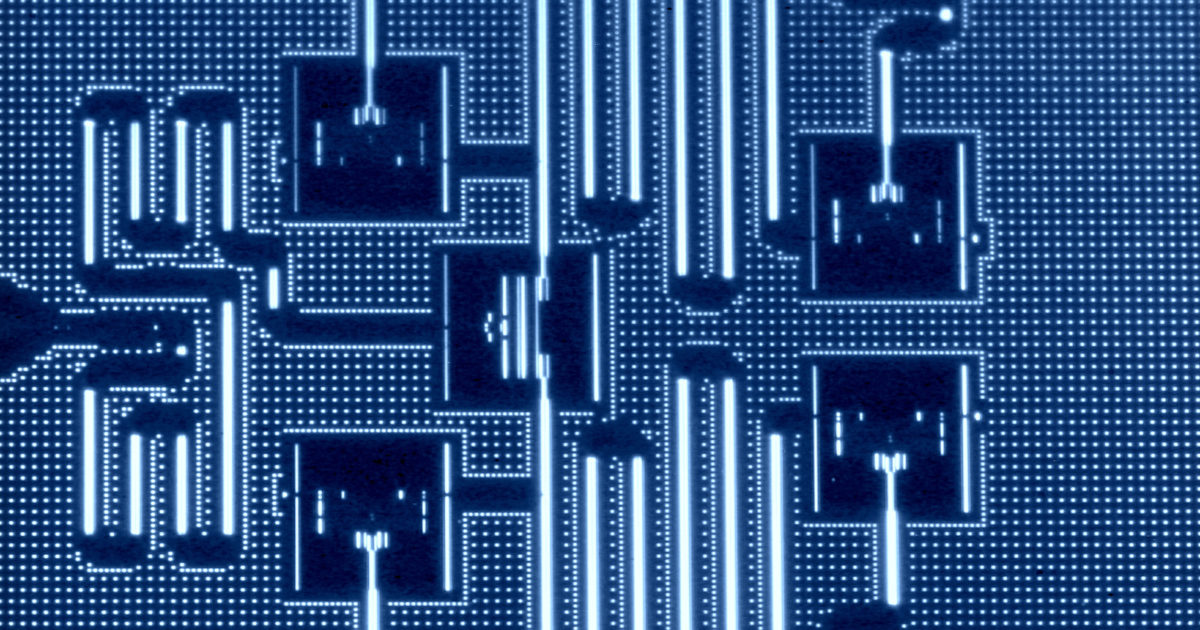The bets have been made
copyright by www.wired.com
Within the next five years, Google will produce a viable quantum computer. That’s the stake the company has just planted. In the pages of Nature late last week, researchers from Google’s Quantum AI Laboratory told the world that a machine leveraging the seemingly magical principles of quantum mechanics would soon outperform traditional computers on certain tasks. They said this long-anticipated technology would, among other things, improve the artificial intelligence that’s already remaking the tech world. “The field of quantum computing will soon achieve a historic milestone,” the team wrote. They call this sign “quantum supremacy.”
The other big players are keeping up
Now IBM is planting a stake of its own. Today, the company announced plans to offer commercial quantum machines to businesses and research organizations within the year. These machines will not bring quantum supremacy—namely, they won’t surpass the performance of traditional machines. But much like Google, IBM claims it will reach that threshold over the next few years. “We are reaching a critical moment,” says IBM research vice president Dario Gill. To view this video, please enable JavaScript, and consider upgrading to a web browser that supports HTML5 video SKIP AD This live video has ended. It will be available to watch shortly.
 Selling the dream
Selling the dream
It’s no accident that these two announcements arrived at about the same time. A true quantum computer is not yet a reality. “You can’t do anything practical today,” says Gregoire Ribordy, founder, and CEO of Quantum cyber-security company ID Quantique. But the world’s biggest tech companies are already jockeying for their form of commercial supremacy as they anticipate a quantum breakthrough. Both Google and IBM now say they will offer access to true quantum computing over the internet (call it quantum cloud computing). Microsoft recently hired several notable researchers in launching its effort to build a quantum computer. And in China, internet giant Alibaba has teamed up with the Chinese Academy of Science to build a quantum computing lab. Meanwhile, various organizations (including Google) are exploring the potential of a commercial machine from D-Wave, which takes a more immediate but less powerful approach to the problem […]
read more – copyright by www.wired.com


The bets have been made
copyright by www.wired.com
Within the next five years, Google will produce a viable quantum computer. That’s the stake the company has just planted. In the pages of Nature late last week, researchers from Google’s Quantum AI Laboratory told the world that a machine leveraging the seemingly magical principles of quantum mechanics would soon outperform traditional computers on certain tasks. They said this long-anticipated technology would, among other things, improve the artificial intelligence that’s already remaking the tech world. “The field of quantum computing will soon achieve a historic milestone,” the team wrote. They call this sign “quantum supremacy.”
The other big players are keeping up
Now IBM is planting a stake of its own. Today, the company announced plans to offer commercial quantum machines to businesses and research organizations within the year. These machines will not bring quantum supremacy—namely, they won’t surpass the performance of traditional machines. But much like Google, IBM claims it will reach that threshold over the next few years. “We are reaching a critical moment,” says IBM research vice president Dario Gill. To view this video, please enable JavaScript, and consider upgrading to a web browser that supports HTML5 video SKIP AD This live video has ended. It will be available to watch shortly.
It’s no accident that these two announcements arrived at about the same time. A true quantum computer is not yet a reality. “You can’t do anything practical today,” says Gregoire Ribordy, founder, and CEO of Quantum cyber-security company ID Quantique. But the world’s biggest tech companies are already jockeying for their form of commercial supremacy as they anticipate a quantum breakthrough. Both Google and IBM now say they will offer access to true quantum computing over the internet (call it quantum cloud computing). Microsoft recently hired several notable researchers in launching its effort to build a quantum computer. And in China, internet giant Alibaba has teamed up with the Chinese Academy of Science to build a quantum computing lab. Meanwhile, various organizations (including Google) are exploring the potential of a commercial machine from D-Wave, which takes a more immediate but less powerful approach to the problem […]
read more – copyright by www.wired.com
Share this: